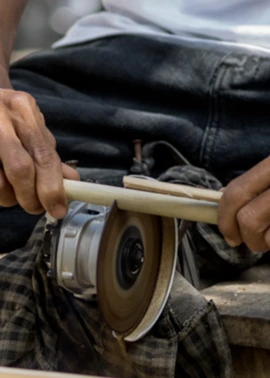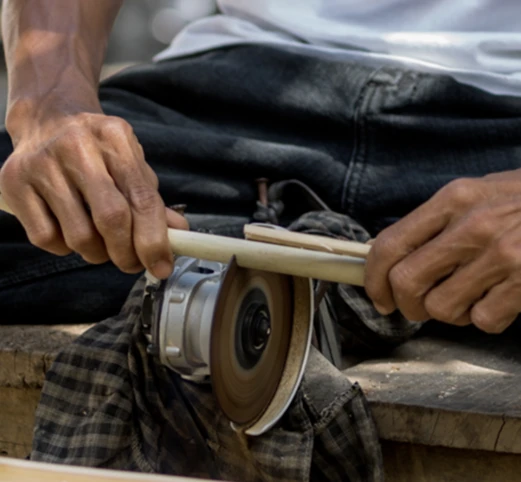Mark Sultan grew up in a family of slash-and-burn farmers living below the poverty line in the conflict-ridden and one of the poorest provinces in the Philippines in Sultan Kudarat. This upbringing inspired him to find a solution to the decline of agricultural productivity for these communities, a recognised cause of widespread poverty in rural Philippines (1). Mark founded Bambuhay, a social enterprise generating opportunities for marginalised indigenous communities through the process of environmental conservation. He started this social enterprise with only $200. Farmers in a simple educational programme through which they are introduced to sustainable agriculture practices and encouraged to shift to bamboo farming.
Bamboo is the perfect crop for this scenario as it “rapidly sequesters carbon in biomass and soil” and “can thrive on inhospitable degraded lands” (2). The bamboo grown by these retrained slash-and-burn farmers is then purchased by Bambuhay generating 200-500% higher income for the farmers than their previous produce. This bamboo is then used to produce plastic-alternative products such as straws, toothbrushes, and bottles, the process of which employs 25 indigenous individuals, including single parents, Indigenous People and people with disabilities. And, impacted 13,910 farmers. This process protects the environment in two simple ways. The reforestation of 428 hectares of denuded land restores the carbon capture capacity of the region. Additionally, produce from the fast-growing bamboo removes the negative environmental consequences arising from plastic pollution, an issue particularly prevalent in the Philippines (3).
The enterprise has grown impressively since its humble beginnings. Bambuhay has received significant grant funding from the British Council and other organisations, raising over $40,000. It is also sustaining itself with sales of its products. The organisation has reinvested all of its $380,000 revenue over the past 3 years to cover all costs. The project's success, and the international recognition gained by Mark since speaking at the One Young World Summit in 2019, has lead to interest from other organisations in replicating the initiative in Mexico, Indonesia, Japan, and Brazil.
Contributor

